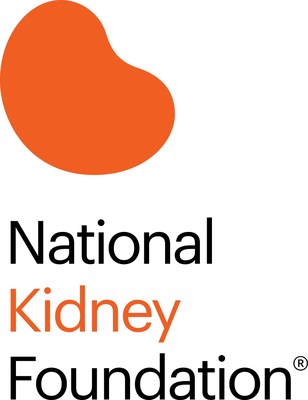American Journal of Kidney Diseases publishes paper on need to re-evaluate how organs are distributed
American Journal of Kidney Diseases publishes paper on need to re-evaluate how organs are distributed
NEW YORK, March 28, 2019 /PRNewswire/ -- The nation's Kidney Allocation System (KAS) may need reform, according to an article published today in the American Journal of Kidney Diseases (AJKD), the official journal of the National Kidney Foundation (NKF).

The authors of "Allocation of the Highest Quality Kidneys and Transplant Outcomes Under the New Kidney Allocation System" studied how the effect of donor quality on post-transplant outcomes is similar regardless of the degree of antigen-sensitization in patients. They found that highly sensitized and non-highly sensitized recipients have similar initial transplant outcomes with a high-quality kidney. Also, initial outcomes are worse in both groups with a lower quality kidney.
"We are concerned that the disproportionate utilization of high-quality kidneys in highly sensitized candidates draws these kidneys away from lesser-sensitized candidates, which may have potential ramifications on post-transplant outcomes in the lesser-sensitized," said lead investigator Edmund Huang, MD.
The investigators studied how the current KAS practice creates a disproportionate number of the highest quality kidneys allocated to the sensitized group, even though the intent of the KAS was to preferentially give these kidneys to those who would benefit the most from them, according to Dr. Huang. The authors highlight how KAS may have successfully provided transplant opportunities for the most highly sensitized recipients via regional and national allocation priorities, the system fails to appreciate the anticipated decreased long-term graft survival in this population compared to the often younger, unsensitized candidates with increased Estimated Post-Transplant Survival (EPTS)
KAS aims to ensure equitable distribution of deceased donor kidneys in the U.S. The current version was implemented in 2014 after a 10-year study by the OPTN Kidney Transplantation, according to the U.S. Department of Health and Human Services.
The latest KAS method increased allocation priority for all deceased donor kidneys to highly-sensitized candidates because these patients were rarely transplanted before the KAS 2014 revision, due to difficulty in finding an acceptable crossmatch. However, according to the article investigators, it appears that the KAS may have overcompensated and given them too much priority so that transplant centers are now able to selectively choose the highest quality organs for them.
"Increased use of kidneys with lower [kidney donor profile index] scores in highly sensitized recipients decreases the availability of these organs for other patients on the waiting list, many of whom would be expected to have better survival after transplantation," the investigators wrote in the article. "Whether allocation policy changes will affect long-term graft survival in lesser sensitized recipients and the overall transplantation population needs to be evaluated in future studies, when longer term data becomes available."
"This review by Huang and colleagues' sheds light on the results of the most recent kidney allocation system and the ongoing need to make more efficient use of deceased-donor kidneys and limit deceased-donor kidney discards," said Dr. Joseph Vassalotti, Chief Medical Officer of NKF. "As all prior organ allocation systems have demonstrated and current UNOS policy proposals for a new allocation system predict, the continuing shortage of donated organs results in challenging decisions in providing fair access often at the expense of optimal kidney utility and/or kidney survival."
The investigators reviewed thousands of cases collected from October 2009 until September 2017 by the Organ Procurement and Transplantation Network/United Network for Organ Sharing database. The investigators say more study is needed of the system before changes to the KAS are proposed.
Article Information
The article is published online and open to anyone for 90 days. It will then only be available to those subscribers to AJKD. Access the article by going to https://www.ajkd.org/article/S0272-6386(19)30056-3/fulltext.
The investigators are Supreet Sethi MD, Reiad Najjar MD, Alice Peng MD, James Mirocha MS, Ashley Vo PharmD, Suphamai Bunnapradist MD, Stanley C. Jordan MD, and Dr. Huang. They are afflicated with the Division of Nephrology, Department of Medicine, Comprehensive Transplant Center, Cedar Sinai Medical Center, West Hollywood. Dr. Bunnapradist is also affiliated with the Division of Nephrology, Department of Medicine, UCLA Kidney and Pancreas Transplant, University of California, Los Angeles David Geffen School of Medicine.
About the American Journal of Kidney Diseases
The American Journal of Kidney Diseases (AJKD), the official journal of the National Kidney Foundation, is recognized worldwide as a leading source of information devoted to clinical nephrology practice and clinical research. Articles selected for publication in AJKD must adhere to rigorous standards, supporting the journal's goal to communicate important new information in clinical nephrology in a way that strengthens knowledge and helps physicians to provide their patients with the highest standard of care.
NKF Professional Membership
Healthcare professionals can join NKF to receive access to tools and resources for both patients and professionals, discounts on professional education, and access to a network of thousands of individuals who treat patients with kidney disease.
Kidney Disease Facts
In the United States 30 million adults are estimated to have chronic kidney disease—and most aren't aware of it. 1 in 3 American adults are at risk for chronic kidney disease. Risk factors for kidney disease include diabetes, high blood pressure, heart disease, obesity and family history. People of African American, Hispanic, Native American, Asian or Pacific Islander descent are at increased risk for developing the disease. African Americans are 3 times more likely than Whites, and Hispanics are nearly 1.5 times more likely than non-Hispanics to develop end stage renal disease (kidney failure).
The National Kidney Foundation (NKF) is the largest, most comprehensive, and longstanding patient-centric organization dedicated to the awareness, prevention, and treatment of kidney disease in the U.S. For more information about NKF, visit www.kidney.org.
Facebook.com
Twitter:@NKF
www.kidney.org
![]() View original content to download multimedia:http://www.prnewswire.com/news-releases/study-raises-questions-about-us-kidney-allocation-system-300820577.html
View original content to download multimedia:http://www.prnewswire.com/news-releases/study-raises-questions-about-us-kidney-allocation-system-300820577.html
SOURCE National Kidney Foundation




